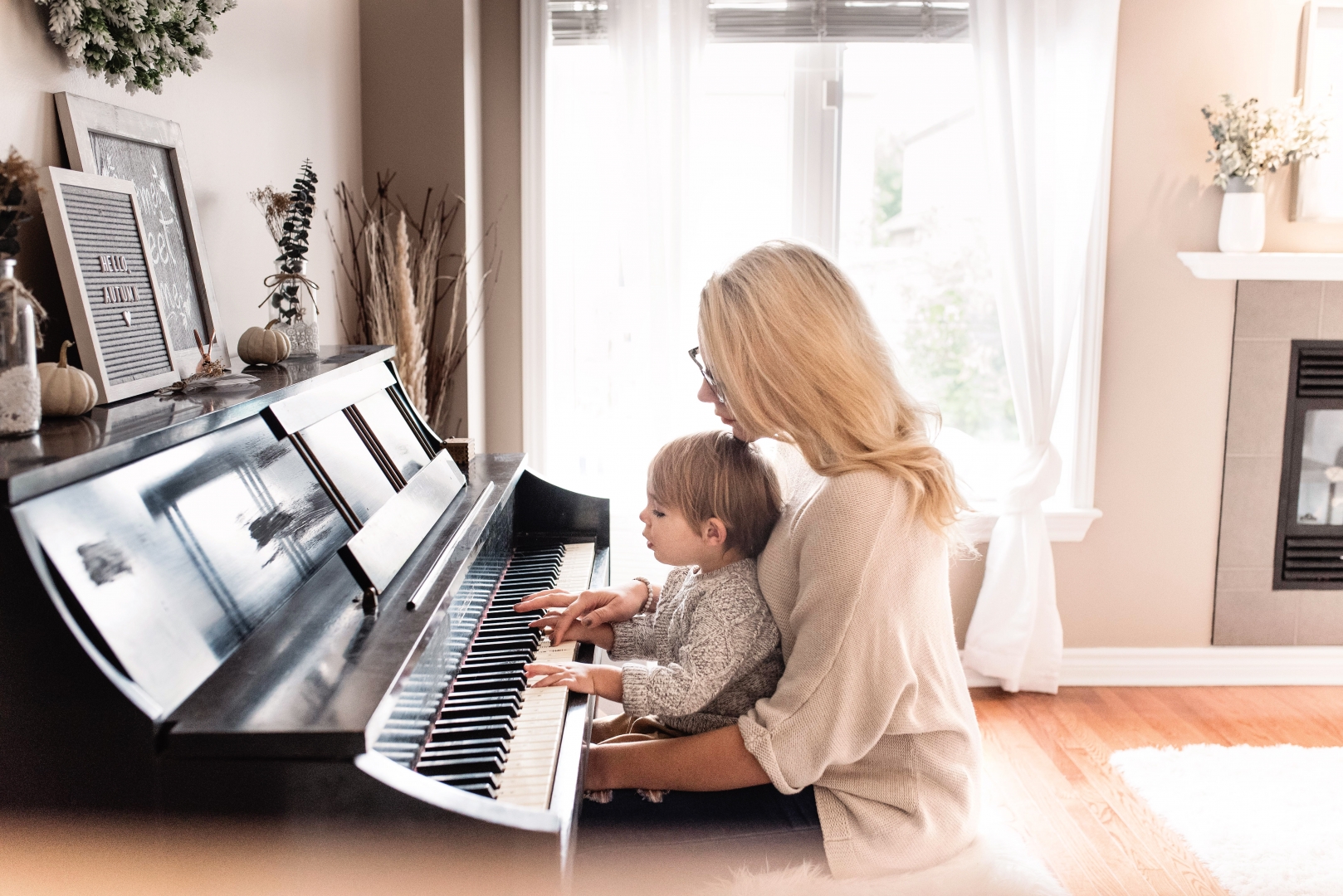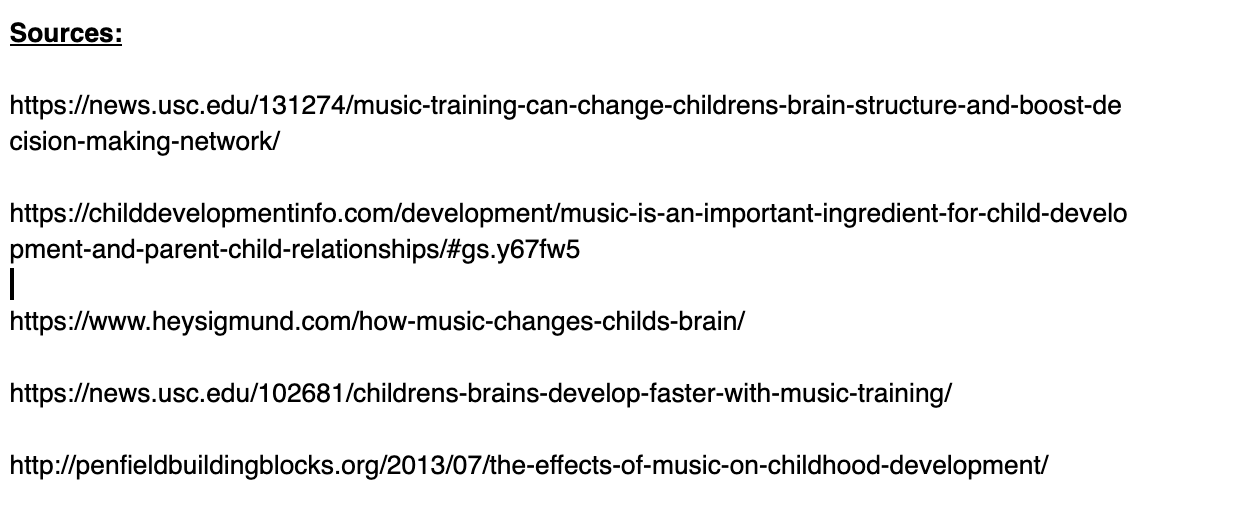
It’s no secret that music has an effect on our brains. Whether you go to a symphony, or a live music show, or even just turn on your favourite song, it’s immediately obvious how music can affect our emotions and our engagement. Listening and experiencing music is a huge benefit to our brain development, especially in children. Music Lessons can have an even bigger impact! Studies have shown that music training can speed up growth in the areas of our brains that process language, sound, speech, and reading skills! Music has so many benefits that aren’t just reading and playing music.
Academic Benefits
While learning an instrument, students must become adept at skills such as decoding, tracking, and decision making. As they learn the ‘language’ of music they are relating symbols into words or notes (for example, they see a circle on a third line and they can translate that to the note B and then they can decode that to play that particular pitch on their given instrument), and also reinforcing the skill of tracking, which they must have in order to read (following a set of symbols on a given line from left to right without losing their place) their notes on the staff. These skills are directly transferred into language skills; specifically, reading.
Another huge benefit to learning music is math! Students may not realize it, but when learning music they are reinforcing many math concepts; counting being a huge one. Rhythm is based on math, and even fractions come into play! Not only this, but musicians are constantly practicing memorizing. This helps build connections in the brain… the old adage “the more you do it, the better you get” definitely applies here. Memory work is improved through practice, and it’s been proven that people with better memories not only have faster brain connections but also increased problem-solving skills.
In 2012 the University of Southern California began a five-year study that investigated how music impacted the brain development of children. The findings of this study show that children who were taking music lessons grew faster in the areas of language and speech processing, and social abilities, than students that were not involved in music classes.
A very famous quote from Einstein states: “If I were not a physicist I would probably be a musician”. Einstein learned to play the piano at a very young age, and his brain has been studied for years because of its connections. It’s been found that musicians tend to have stronger connections within their brains from a younger age. It’s no surprise that Einstein valued music so much, and it’s still unknown how much that love of music impacted his brain development!
Emotional Benefits
Another critical skill that students gain from learning an instrument is resilience. Learning music takes time and practice, and musicians make a lot of mistakes before they can master a song. It’s an extremely important skill for children to have the ability to handle frustration over mistakes and try again; reinforcing this ability builds resilience, which is not only important in music, but in academics, sports, and life!
It’s also been noted that when parents and children share musical experiences, whether it be taking lessons together, learning an instrument together, listening to favourite music, or dancing together, they improve their parent-child relationships. Here at Crescendo, we know that parents are the biggest support our students’ have on their music journey… there is nothing as wonderful as watching a parent and teacher cheer a student on as they learn music!
If parents do know an instrument, or also want to learn, it’s a great bonding experience. Not only would your interest and dedication motivate your child, but it could become a passion that you share! Maybe one day you could even perform a duet. However, don’t panic if music isn’t something you’re well versed in! A starting point is as simple as parents singing lullabies to children; this has been shown not only to help with bonding but to improve language! Older children can sing along and dance with you. Doing these activities not only builds memories that children will love for many years to come, but music is known to release dopamine, a neurotransmitter that is associated with happiness, empathy, and positive emotions.
Perhaps one of the most important but least acknowledged benefits of learning music and taking music classes is that it can be a great boost to a child’s self-esteem. All people, whether adults or children, like to have hobbies and skills that they work on and are proud of. Music students who eventually become performers are already learning and practicing their public speaking/performance skills! It’s also been noted that children who take music are more willing to try new things, and are more confident when learning new skills.
Still not sure? Here is Ted Talk “Does Music Change a Child’s Brain” with some more facts!
